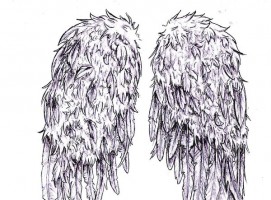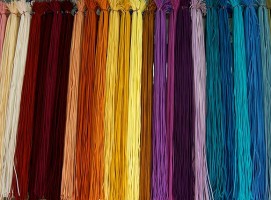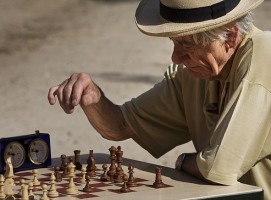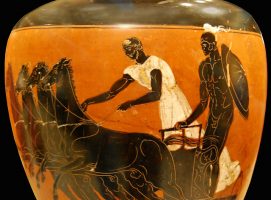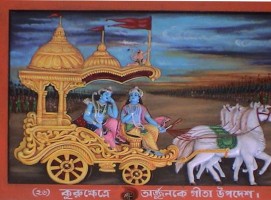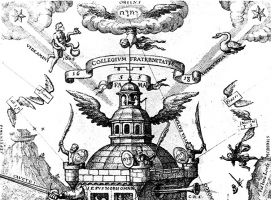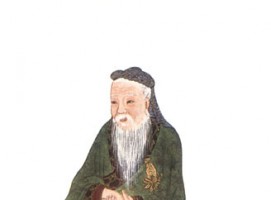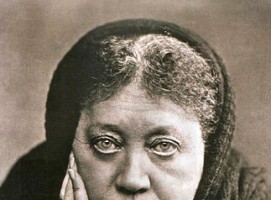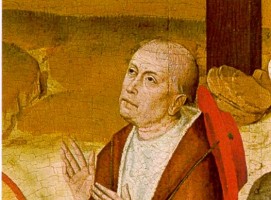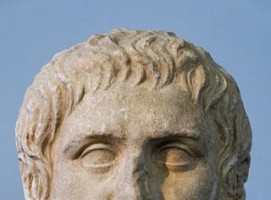Showing 434 articles
The Symbolism of Wings
Author: M.A. Carrillo de Albornoz & M.A. FernándezAugust 22, 2014
Wings are the symbol of lightness, spirituality, the possibility of flying and rising up to heaven. Wings are the expression of the aspiration of the soul towards a higher than human condition, in other words the aspiration to transcend the human condition. Wings are related to the cognitive faculty, imagination, thought, freedom and victory. According [...]The Symbolism of the Thread
Author: M.A. Carrillo de Albornoz & M.A. FernándezAugust 22, 2014
The symbolism of thread is essentially that of the relation existing between all states of being and between the latter and their First Cause. This symbolism is clearly expressed in the Upanishads where thread links this world to the other world and to all beings. This thread is both Âtma and Prâna. Because it is [...]The Symbolism of Chess
Author: M.A. Carrillo de Albornoz & M.A. FernándezAugust 22, 2014
Though the origin of the game of chess is still unknown and mysterious, it is quite certain that it originated in the East, though it is the West that became infatuated with it. We also know that, in its beginnings, the game of chess was part of the strategy of war and was therefore applied [...]The Symbolism of the Charioteer
Author: M.A. Carrillo de Albornoz & M.A. FernándezAugust 22, 2014
The charioteer is the symbol of calmness, self-control and mastery of the mind and psyche, so ever changing and unstable. He reduces the manifold, reaching us from the outside world, to the inner unity of will. The horses of the chariot are our instincts and passions. In general there are four of them, corresponding to [...]Modern Mythology
Author: Sabine LeitnerAugust 8, 2014
Introduction Despite their universal existence in all civilizations and all times of history, myths have often been scoffed at and regarded as old wives tales. August Comte, the founder of positivism and sociology, relegated myths to the most early and primitive level of intellectual evolution and Lucien Lévy-Bruhl, a French philosopher, associated myth with pre-logical [...]Ramses II
Author: Alex WarrenAugust 8, 2014
If, today, at the end of the twentieth century, one were to ask the average person to name an Egyptian pharaoh, the reply would probably be, “Tutankhamen.” This, of course, is due to the highly unusual discovery by Howard Carter in 1922 of the child-king’s small but almost intact tomb. Tutankhamen died at age 17. [...]The Mysterious Fraternity of the Rosicrucians
Author: Julian ScottAugust 8, 2014
In 1614 and 1615, two ‘Rosicrucian Manifestos’ were published in Germany. They described the foundation of the “Fraternity of the Rosy Cross”, outlined its basic principles and invited learned men of good will to apply for membership and contribute to a “general and universal reformation of the whole wide world”. The first Manifesto, entitled “Fama [...]The Crisis of Western Education and the Role of Philosophy
Author: Sabine LeitnerAugust 8, 2014
Introduction In the developed world, the standards of literacy, numeracy, general knowledge and behaviour are falling. Millions of young people have also become disaffected from school and, despite the fact that previous generations have fought hard to make what was once a privilege of the rich accessible to all, do not see much point in [...]Confucius
Author: AnonymousAugust 8, 2014
The philosopher who has had most influence on the Chinese people is known in the history of thought by the name of K’ung-fu-tzu, or Master K’ung, which the Jesuit missionaries of Peking latinized to Confucius. According to tradition, K’ung Chung-ni, or K’ung Ch’iu was born in Ch’ü-fu in the State of Lu, on the 21st [...]Helena Petrovna Blavatsky
Author: AnonymousAugust 8, 2014
But to the public in general and the readers of the Secret Doctrine I may repeat what I have stated all along, and which I now clothe in the words of Montaigne: Gentlemen: “I have here made only a nosegay of culled flowers, and have brought nothing of my own but the string that ties [...]Nicholas of Cusa
Author: AnonymousAugust 8, 2014
Nicholas Cryfts – or Krebs – was born in Kues (Cusa), on the banks of the River Moselle, in the region of Trier, now Germany, in 1401. His father, Johan Cryfts, a rich ship owner, died in 1451 and his mother, Catherina Roemer, in 1427. His early education took place at the school of the [...]Plato
Author: AnonymousAugust 8, 2014
The son of Ariston and a descendant of King Codrus and Perictione, who was a descendant of the great lawgiver, Solon, he was born in Athens in 429/28 B.C. and died in 347 B.C. His real name was in fact Aristocles and Plato was a nickname that means “broad-shouldered”. It was apparently given to him [...]